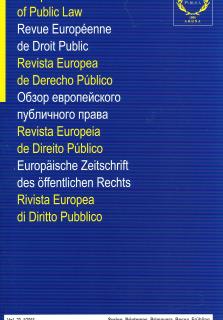
Global Administrative Order
Poland
The idea of globalization of law is relatively new to Polish legal doctrine. Currently, it is more the subject of interest of legal theorists rather than practitioners. Legal philosophers and legal theorists mainly consider whether a universal global legal order is possible, and if so, how it could be constructed and what its content would be. In other fields of law, including administrative law, there is a lack of deeper consideration of this issue. In Poland, effective cooperation with global regulatory bodies is a part of administrative practice. Poland cooperates with such bodies in the field of standardization law and the Internet. For many years, Poland has been very strongly engaged in environmental protection on a global scale. Almost all important international treaties, among them the Aarhus Convention, the United Nations Framework Convention on Climate Change (UNFCCC) with its Kyoto Protocol, have been incorporated into the Polish legal system. Poland is a member of the World Health Organization, International Labor Organization, International Monetary Fund as well as the World Bank. Although Poland is trying to engage in all the initiatives aimed at resolving global problems on an international level, it does not refrain from invoking its own measures in order to avoid the repercussions of global problems. Excellent evidence for this is Poland’s reaction to the current financial crisis and swine flu outbreak.





















